Cisco ASA VPN integration
Multi-factor authentication (MFA) is an extra layer of security used when logging into websites or apps to authenticate users through more than one required security and validation procedure that only you know or have access to.
Security Assertion Markup Language (SAML) is a protocol for authenticating to web applications. SAML allows federated apps and organizations to communicate and trust one another’s users.
Acceptto™, as a SAML provider, improves the user login experience for Cisco VPN users with intelligent and convenient MFA.
Prerequisites
Acceptto account with a configured Identity Provider and LDAP Agent.
For more information, see the LDAP Agent deployment guide.
Cisco ASA user account with administrative access.
Note
Cisco supports SSO Server in ASA version 9.7.1.24 or later.
If users want to connect with AnyConnect, they need AnyConnect 4.7 or later.
User account with administrative privileges for the Acceptto eGuardian dashboard.
Cisco ASA configuration
In this section, you'll configure Cisco ASA as a service provider (SP).
Download the SAML metadata and certificate for your organization from Acceptto.
Metadata download:
https://sso.acceptto.com/<myorganization>/saml/download/metadataView metadata:
https://sso.acceptto.com/<myorganization>/saml/metadataCertificate download:
https://sso.acceptto.com/<myorganization>/saml/download/certLog in to your Cisco ASA as an administrator via ASDM.
Select the Configuration tab and click Device Management.
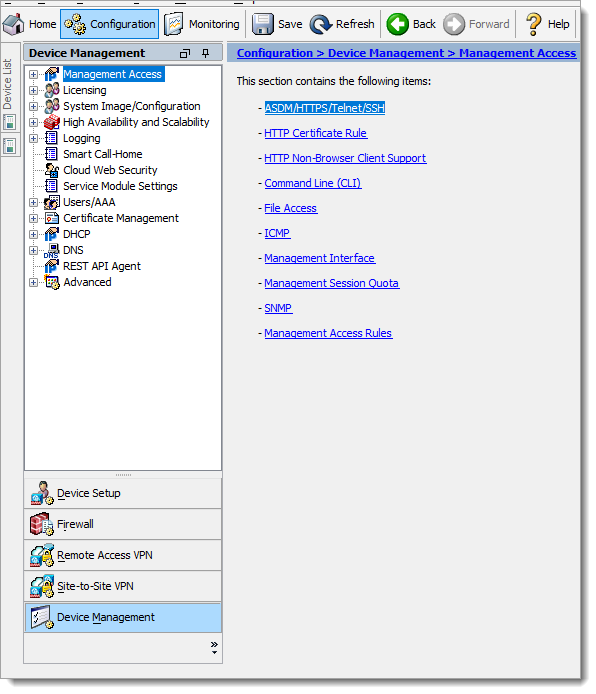
From the navigation bar, click Certificate Management, and select CA Certificates.
Click Add.
In the Install Certificate section, set the following:
Trustpoint name
Set to a unique name.
Install from a file
Click Browse and upload the Acceptto certificate downloaded in Step 1.
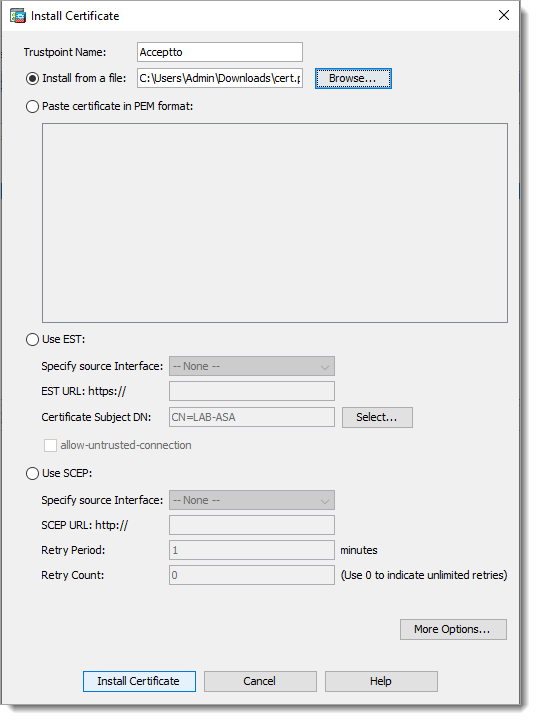
Click Install Certificate.
Note
If installing the certificate through ASDM fails, connect to your ASA via SSH and run the following commands:
LAB-ASA(config)# crypto ca trustpoint “Trustpoint Name e.g. Acceptto” LAB-ASA(config-ca-trustpoint)# enrollment terminal LAB-ASA(config-ca-trustpoint)# no ca-check
Cisco AnyConnect connection profile configuration
Select the Configuration tab and click Remote Access VPN.
From the left navigation bar, click Network (Client) Access and then select AnyConnect Connection Profiles.
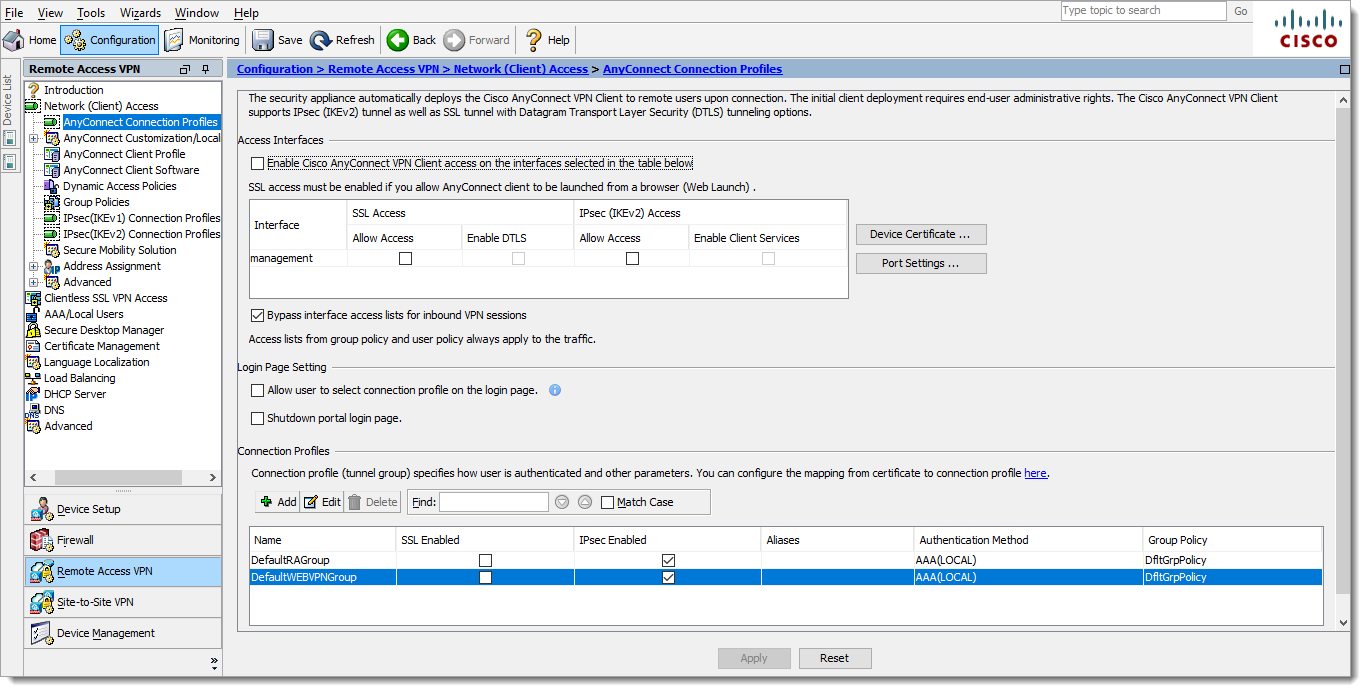
In the Connection Profiles section, select the Tunnel Group that you want to configure for SSO and click Edit.
In the Authentication section, click the Method drop down and select SAML.

In the SAML Identity Provider section, click on Manage button. In Configure SSO Servers SAML, click Add.
Copy the IDP Entity ID, Sign In URL and Sign Out URL from the Acceptto metadata that was downloaded earlier and paste in the required fields on the Add SSO Server page.
On the Base URL field, select https. Enter the URL of your Cisco ASA that users use to connect their VPN. Ensure that this URL is resolvable.
Select the Acceptto Certificate that uploaded in the previous section for Identity Provider Certificate.
Select ASA Certificate for Service Provider Certificate.
Enter 180 in the Request Timeout field.
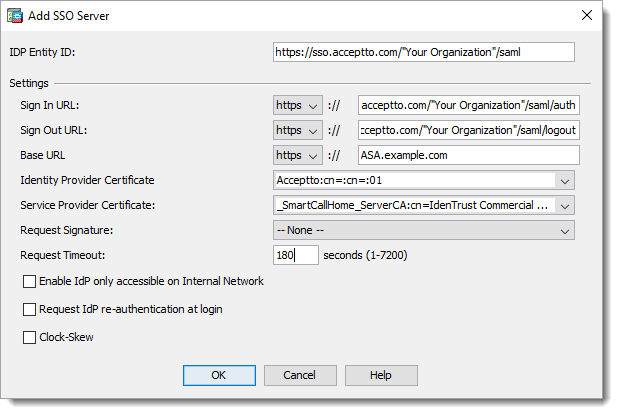
Click OK. Go back to the Edit Connection Profile page.
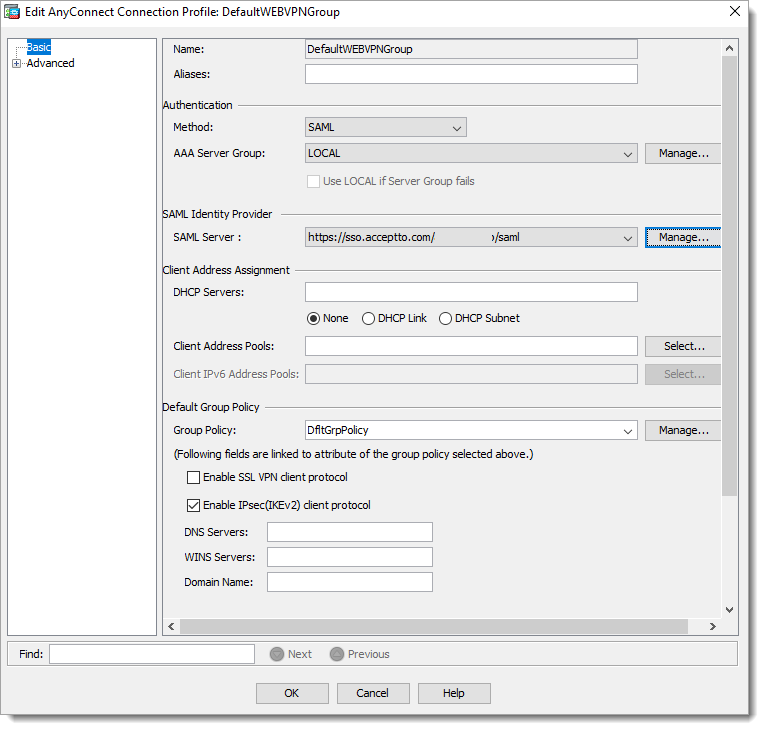
Click OK to save Profile Configuration. Select Apply to save the settings.
Connect to the ASA via SSH to obtain the required information for the next section. Run the following command and copy the ACS URL, SP Entity ID and Single Logout Service URL values.
LAB-ASA(config)# show saml metadata “Connection Profile for SSO”

Acceptto SAML Configuration as Identity Provider (IdP)
Login to the Acceptto Dashboard with an administrative account and go to Applications.
Create a new application by selecting the Create New Application.
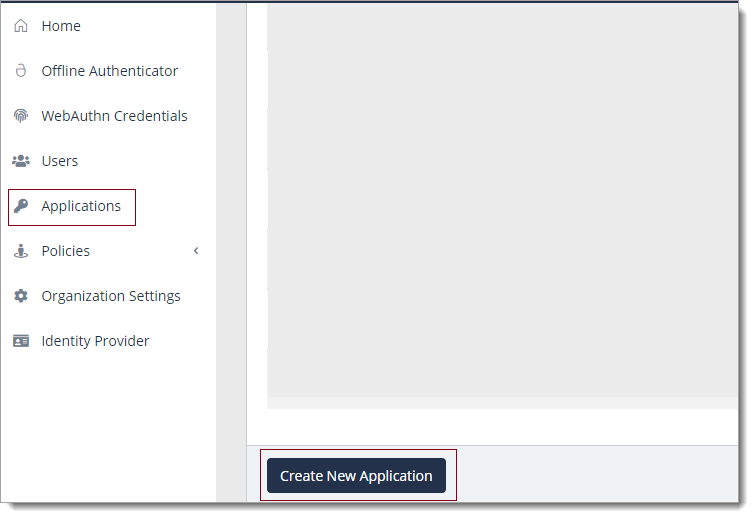
In the New Application form, enter the following values under the General tab:
Name - The application name displayed in the admin panel and application portal and used for push notifications and audit logs (e.g. Cisco ASA).
Type - Select "SAML Service Provider" from the options.
Out of Band Methods - Select the allowed methods for approving MFA requests
Message for MFA Requests - Enter the user-facing message for Push, SMS, and email MFA requests (optional)

Under the SAML Service Provider Configuration tab, enter the following values:
Issuer or Entity ID – The Issuer/EntityID of your ASA (e.g.
https://ASA.example.com/saml/sp/metadata/DefaultWEBVPNGroup)Sign in URL - The link used by your users to access the VPN (e.g.
https://ASA.example.com)NameID Format - Email Address.
Name Identifier - Email.
ACS URL - The Assertion Consumer Service of your ASA (e.g.
https://ASA.example.com/+CSCOE+/saml/sp/acs?tgname=DefaultWEBVPNGroup)Single Logout URL - The Single Logout URL of your ASA (e.g.
https://ASA.example.com/+CSCOE+/saml/sp/logout)
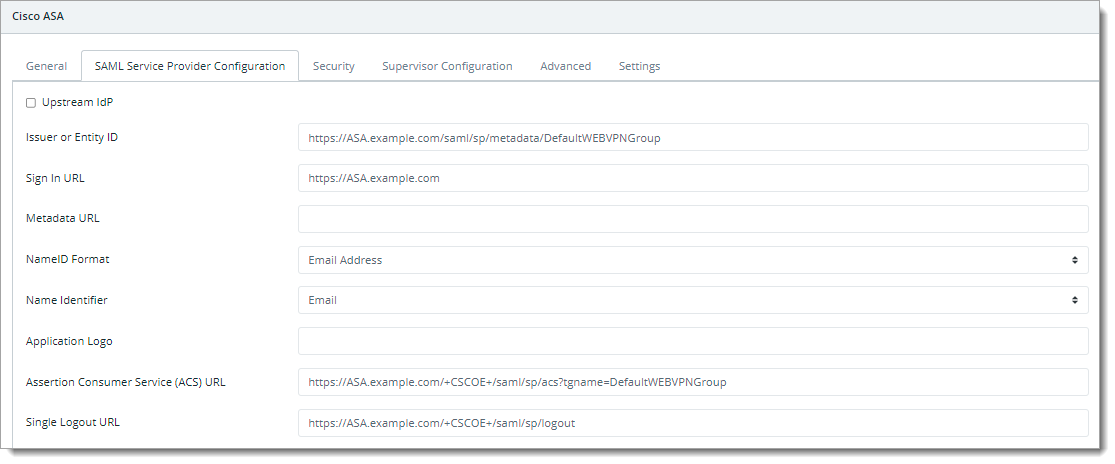
Click Save.
Test your application integration
Go to your Cisco VPN URL (e.g. ASA.example.com). Choose the preferred tunnel group and click Login.
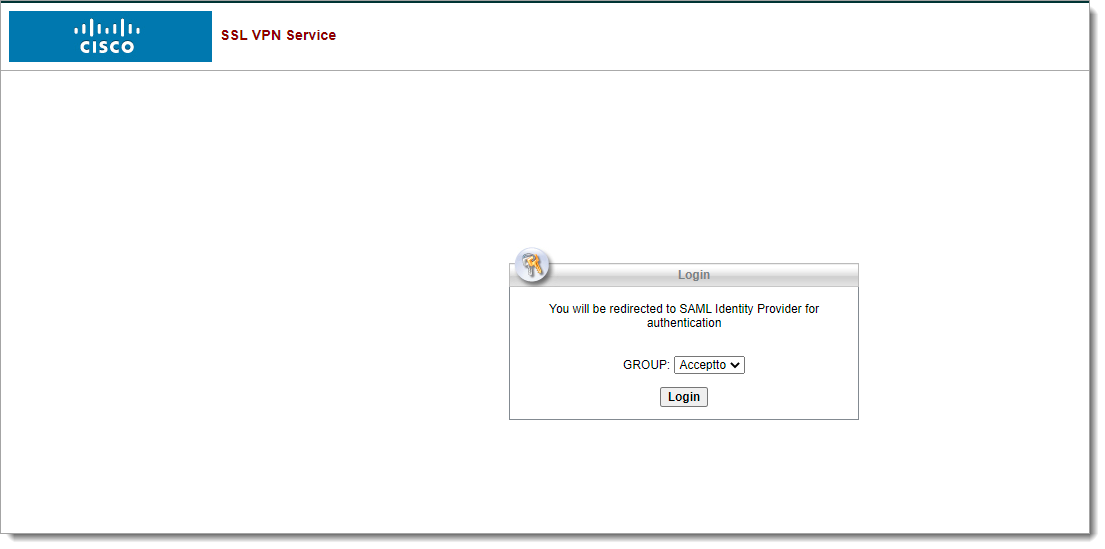
You will be redirected to the Acceptto’s SSO page.
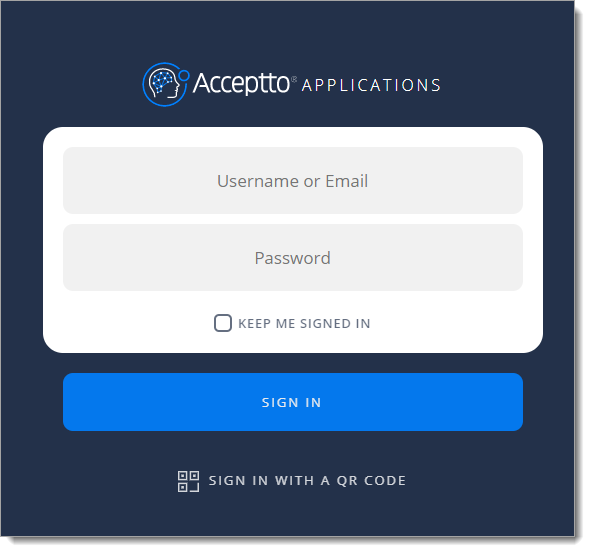
After successful authentication, you’ll see the Acceptto MFA options. Select your desired method.
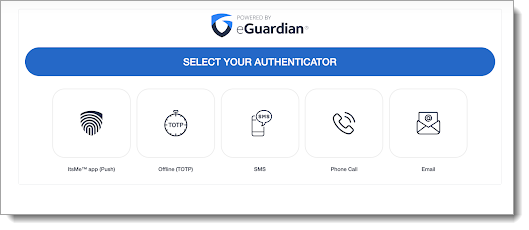
Finally, your VPN connection will be established successfully.

Support
If you have questions or need assistance, contact SecureAuth Support.
Sales
Want to learn more about our MFA solutions? Contact our Professional Services for a demo today.
Disclaimer
All product names, trademarks, and registered trademarks are the property of their respective owners.
All company, product, and service names used in this document are for identification purposes only. The use of these names, trademarks, and brands do not constitute an endorsement by the SecureAuth Corporation.